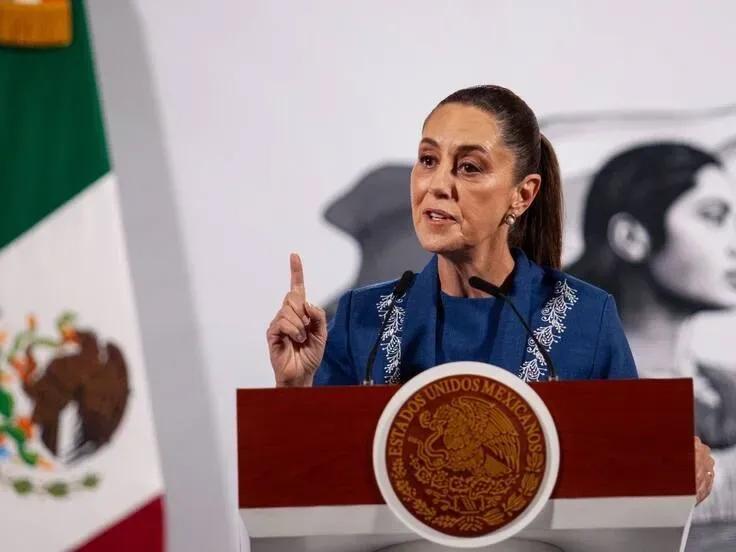Jesús Daniel Romero, former Deputy Director of Intelligence of the Naval Forces of the Southern Command of the United States, for FinGurú
Part I – The Ideological Shift: The Diplomacy of Asylum
The foreign policy of Mexico has undergone a profound ideological transformation. What was previously presented as a non-intervention policy has become a leftist solidarity program that combines diplomacy, economy, and security under the same political logic.
From the presidency of Andrés Manuel López Obrador to the current administration of Claudia Sheinbaum, the country has become a political and socio-economic sanctuary for the socialist governments of Latin America.
The change became visible in 2019 when López Obrador offered asylum to Evo Morales after his resignation amid an electoral crisis in Bolivia (Axios, 2019). This gesture revived Mexico's historical role as a refuge for ideological allies. Years later, the pattern repeated itself in Ecuador. Jorge Glas, the former vice president convicted of corruption, sought refuge in the Mexican embassy in Quito. When the Ecuadorian police entered the premises to arrest him, diplomatic relations collapsed, and Mexico brought the case before the International Court of Justice (BBC News, 2024; Global Voices, 2024).
By 2025, this policy had solidified as doctrine. In November, the Sheinbaum government granted asylum to Betssy Chávez, former prime minister of Peru and a close ally of former president Pedro Castillo. Chávez sought protection in the Mexican embassy in Lima after the Peruvian prosecutor accused her of rebellion and conspiracy for her alleged involvement in Castillo's attempted self-coup in 2022. Faced with the imminent threat of a preventive arrest warrant, she entered the diplomatic headquarters on November 2, 2025, and formally requested asylum, claiming political persecution. The next day, the Mexican Foreign Ministry approved her request. The Peruvian government considered the action an interference in a criminal process, broke diplomatic relations, and accused Mexico of protecting an ideological ally rather than a true political refugee (France 24, 2025; Gulf Times, 2025).
Internally, Sheinbaum projects an institutional and modern image; externally, she extends the Bolivarian alignment of her predecessor. The result is a paradox: a government that speaks the language of democracy while protecting figures who undermine it. Relations with Peru, Ecuador, and Chile have deteriorated, while Mexico's influence within the leftist bloc of the hemisphere has strengthened.
Part II – Economic Sponsorship: The Diplomacy of Oil
The economy follows the same ideological orientation. Between 2024 and 2025, Pemex resumed regular oil shipments to Cuba, transporting hundreds of thousands of barrels monthly under bilateral “humanitarian cooperation” programs. In practice, these shipments function as financial support for the single-party regime in Havana, helping it withstand fuel shortages and international sanctions (AP News, 2024; Reuters via Yahoo News, 2024).
Sheinbaum has maintained and even expanded these transfers, transforming Mexican energy diplomacy into a mechanism of ideological sponsorship. Oil becomes a political message and subsidy: a tangible manifestation of solidarity with the Cuban communist regime and a gesture of defiance towards Washington.
The symbolism of this policy is unmistakable. While other Latin American countries diversify their energy alliances, Mexico dedicates its resources to sustain its ideological allies. This form of “energy solidarity” projects loyalty to revolutionary causes over market cooperation, consolidating Mexico as the axis of the new leftist bloc on the continent.
Part III – The Internal Mirror: The “Humanist War” on Drugs
The same ideological lens that guides Sheinbaum's diplomacy also defines her internal security policy. Her so-called “humanist war on drugs” seeks to reduce confrontation with cartels and reinterpret drug trafficking as a social rather than a military problem. The president maintains that violence is a consequence of inequality and that punitive strategies perpetuate poverty and dependency.
This philosophy has softened cooperation with U.S. security institutions and has slowed collaboration with agencies like the DEA. It reflects a deep conviction: foreign pressure distorts national sovereignty. In the international arena, Sheinbaum applies the same logic: authoritarian governments are presented as victims of imperial interference, and providing them with political protection becomes a moral duty. In both realms, compassion replaces coercion, and sovereignty replaces accountability.
The consequences are evident. Extraditions have decreased, and organized crime has expanded its territorial control. At the same time, Mexico's diplomatic posture has openly leaned towards Cuba, Venezuela, and Nicaragua, while relations with Peru, Colombia, and Chile have cooled. The convergence between internal indulgence and external solidarity reveals a coherent vision: ideology prevails over institutions.
Conclusion
Under the leadership of Claudia Sheinbaum, Mexico has replaced pragmatic diplomacy with a moralized policy. Her government presents its ideological allies as victims of persecution and turns containment into virtue. Embassies have transformed into sanctuaries, oil shipments into instruments of soft power, and the war on drugs into an expression of ideological identity. This is not simply a tactical change, but a philosophical one. The new Mexican foreign policy blends revolutionary nostalgia with economic nationalism, projecting empathy while protecting regimes that reject reform. Whether this orientation will strengthen national autonomy or accelerate its isolation will depend on how long ideology can substitute for results, both in internal governance and international credibility.
Jesús Daniel Romero is a Retired Commander of the United States Navy. He was the Deputy Director of Intelligence of the Naval Forces of the Southern Command of the United States, had outstanding diplomatic missions in Central America, and led special intelligence investigation teams, including the one that imprisoned Debra Lynn Mercer-Erwin, known as "The Queen of the Air," sentenced in 2024 to 16 years in prison by the U.S. justice system for drug trafficking and money laundering.
Romero is the author of the book "The Final Flight: The Queen of the Air," which became a bestseller on Amazon just days after its publication. He is also a regular consultant on his specialty topics for the most prominent media outlets in the United States, especially in the state of Florida.

Comments